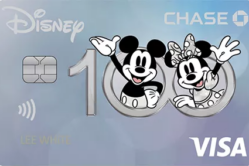As much as we’d love to pay all of our credit card balances in full, sometimes that’s just not possible. If you plan to carry a balance on your credit card for any reason, it is in your best interest to have at least one low interest credit card to use for that purpose. With a low interest credit card, you can often save hundreds – or even thousands – of dollars in interest payments over the course of several months or years.
Most credit cards charge an Annual Percentage Rate, or APR, that falls somewhere between 3.9% and 24.99%. Since months aren’t all the same length, most banks break the APR down into a Daily Periodic Rate (DPR) – a percentage of interest that is charged on your balance daily. To find out your card’s DPR, simply divide your APR by 365 or 360.
Here’s where things get interesting. Although interest rates are generally portrayed as fees charged on an annual basis, cards that operate using the DPR actually tack on interest daily. Even worse, the interest that is tacked on daily compounds and builds upon itself – leading to more debt and more bills over time.
Of course, the higher the interest rate, the worse it gets. And unfortunately, average interest rates aren’t always that attractive to begin with. According to BankRate.com, the average APR charged by fixed rate credit cards sat at 13.02% as of June 2015. For variable rate cards, the average was 15.89%. While those percentages aren’t necessarily considered high, they aren’t considered low either. That’s why it’s important to shop around and find a card that truly offers affordable rates. In some cases, you can’t afford not to.
Featured Low Interest Credit Cards
Chase Freedom Unlimited®
Limited Time Intro Offer:
Some people prefer simplicity compared to trying to maximize each penny they can save. If you are that type of person, then check out the Chase Freedom Unlimited®, which offers an automatic 1.5% cash back on all purchases, with additional cash back in bonus categories offering up to 5% cash back.
There are no spending limits, no rotating categories to worry about, and no limits on the amount of cash back you can earn. There are also no minimums for redeeming your rewards. There is no annual fee, and your rewards don’t expire as long as you keep your account open.
To top it off, this card offers a 0% Intro APR for 15 months on purchases and balance transfers from the time you open your account. A APR will apply after that. See the website for current rates, pricing, and terms.
U.S. Bank Visa® Platinum Card
For a limited time, U.S. Bank is offering a 0% introductory APR on purchases and balance transfers for 18 billing cycles on the U.S. Bank Visa Platinum Card. After the intro period, the card has a variable rate, currently between APR.
The long 0% intro APR makes it one of the better cards out there for balance transfers and low interest to pay down debt. Additionally, the Platinum Card allows you to divide large purchases into fixed monthly payments with the U.S. Bank ExtendPay Plan – with no interest (but there is a small monthly fee for the service).
Here are the key points:
- 0% Intro APR on purchases and balance transfers for 18 billing cycles. After that, a APR applies.
- Get up to $600 protection on your cell phone (subject to $25 deductible) against covered damage or theft when you pay your monthly cellular telephone bill with your U.S.Bank Visa® Platinum Credit Card. Certain terms, conditions, and exclusions apply
- Choose a payment due date that fits your schedule
- No Annual Fee
- Pay over time by splitting eligible purchases of $100+ into equal monthly payments with U.S. Bank ExtendPay™ Plan
- Terms and conditions apply
How Low Interest Credit Cards Work
Although low interest credit cards work similarly to almost all unsecured credit cards on the market, some distinct features set them apart. Here are some common attributes that low interest credit cards tend to have:
Low interest cards don’t normally offer rewards programs – Since low interest credit cards charge lower interest rates, they generally don’t offer rewards programs. However, there are exceptions and some low interest cards certainly break the mold. When you’re shopping for a low interest credit card, make sure to compare not only interest rates, but perks too.
Some low interest cards also offer generous balance transfer offers – Several low interest credit cards on the market offer attractive terms to individuals who hope to transfer a balance to save money. In some cases, the balance transfer APR can even be as low as 0% for up to 16 months.
Most low interest cards don’t charge an annual fee – Since most low interest cards offer fewer benefits than rewards cards, they don’t usually charge an annual fee. If you aren’t all that interested in rewards and just want to save money, choosing a card that doesn’t charge an annual fee might be a smart move.
Some low interest cards offer 0% APR on purchases for a limited time – Along with generous terms for zero percent balance transfers, some low interest credit cards offer 0% APR on purchases for a limited time, usually between 6 and 18 months.
You may need good or average credit to qualify – Since low interest credit cards charge a lower APR than many competing cards, they are less likely to accept customers who pose a high rate of risk. In other words, you may need average or good or at least good credit to qualify for a low interest credit card.
How to Select a Low Interest Credit Card
Choosing a card that charges a low APR is a no brainer, but that doesn’t mean your final card choice will be obvious. Today’s market is saturated with cards that offer all kinds of perks to consider in addition to a low APR. The following tips can help you choose the best card for your situation:
Know your credit score – If you have good or excellent credit, you should have no problem qualifying for a low interest credit card. On the other hand, bad or fair credit might hold you back from getting the exact card you want. That’s why it’s important to find out your credit score ahead of time. If you want to get your credit score for free, you can do so by signing up for a free account at CreditKarma.com or CreditSesame.com.
Compare other perks – Although low interest cards may not have stellar rewards programs, some still offer special perks or incentives. Perks to look out for and compare can include a free FICO score on your statement, cash-back, no foreign transaction fees, trip cancellation insurance, and more.
Steer clear of annual fees – When you’re looking for a low interest credit card, that generally means you plan to carry a balance. When that’s the case, you should think long and hard before paying an annual fee. Remember, the annual fee needs to be paid on top of the interest you’ll accrue daily. If you have your eye on a card with an annual fee for any reason, you should always do the math to make sure the perks or rewards are worth it.
Consider your long-term goals – Before you get a low interest credit card, ask yourself what your goals are. If you hope to transfer a balance and save money, for example, you should look for cards that can assist you. Meanwhile, if you want a card you can keep for a long time to build your credit history, you should probably choose one that doesn’t charge an annual fee. Whether you’re deciding on a specific card or course of action, it always helps to define your goals and make sure your actions make sense.
A low interest credit card can be a valuable tool if used to make large purchases that you hope to pay back over time. By taking advantage of the low interest rates they offer, you can create an affordable payment plan and save money on interest – all in one fell swoop.
With that being said, it’s important to find the best low interest card for your needs. With so many cards on the market, sometimes that’s the hardest part. As always, make sure your decision is an informed one.
The Military Wallet has partnered with CardRatings for our coverage of credit card products. The Military Wallet and CardRatings may receive a commission from card issuers. Some or all of the card offers that appear on The Military Wallet are from advertisers. Compensation may impact how and where card products appear, but does not affect our editors’ opinions or evaluations. The Military Wallet does not include all card companies or all available card offers.



About the comments on this site:
These responses are not provided or commissioned by the bank advertiser. Responses have not been reviewed, approved or otherwise endorsed by the bank advertiser. It is not the bank advertiser’s responsibility to ensure all posts and/or questions are answered.